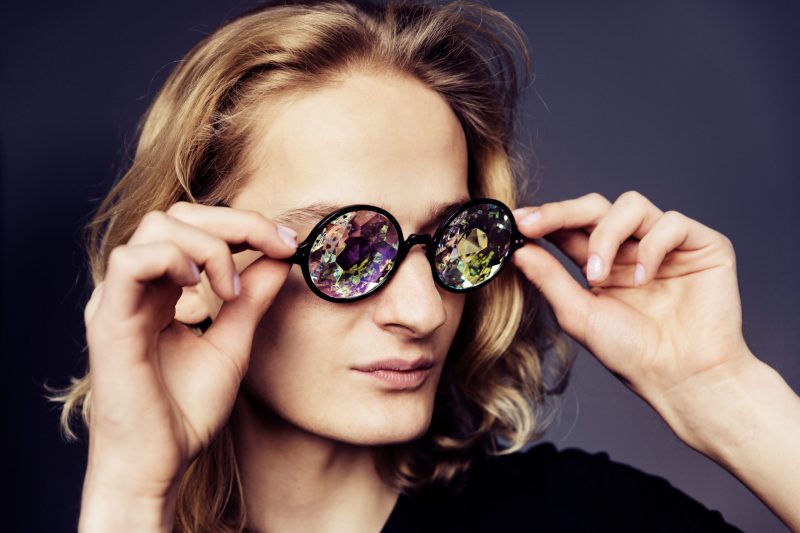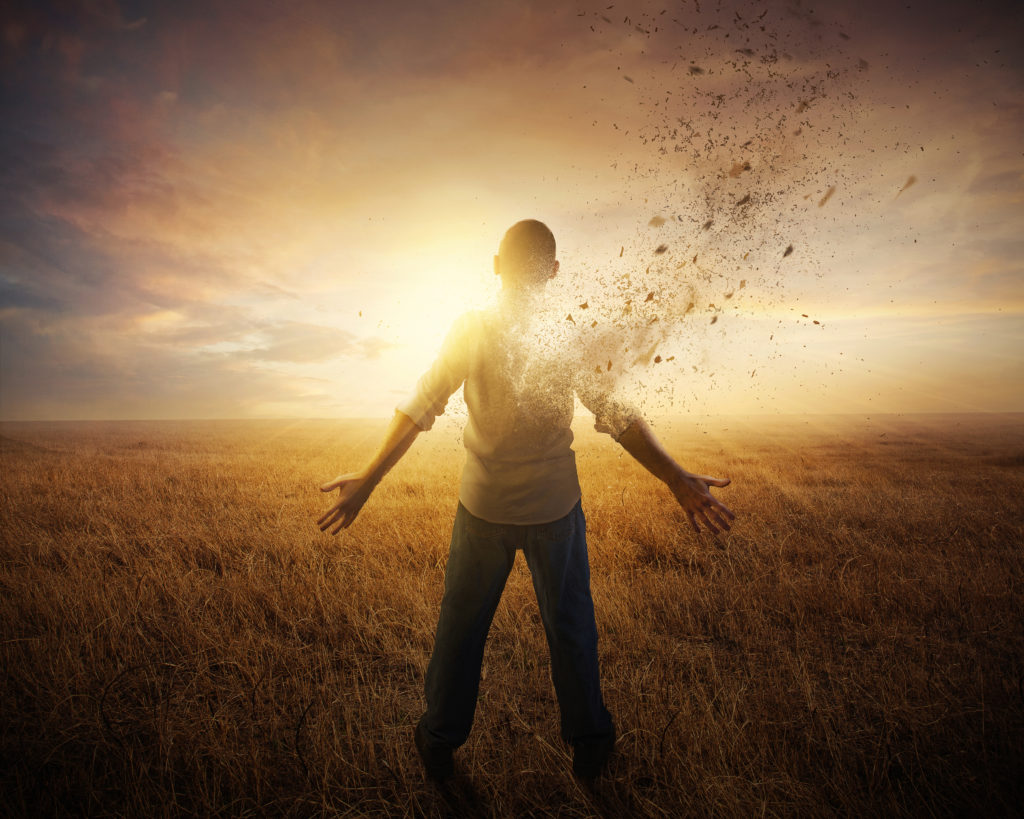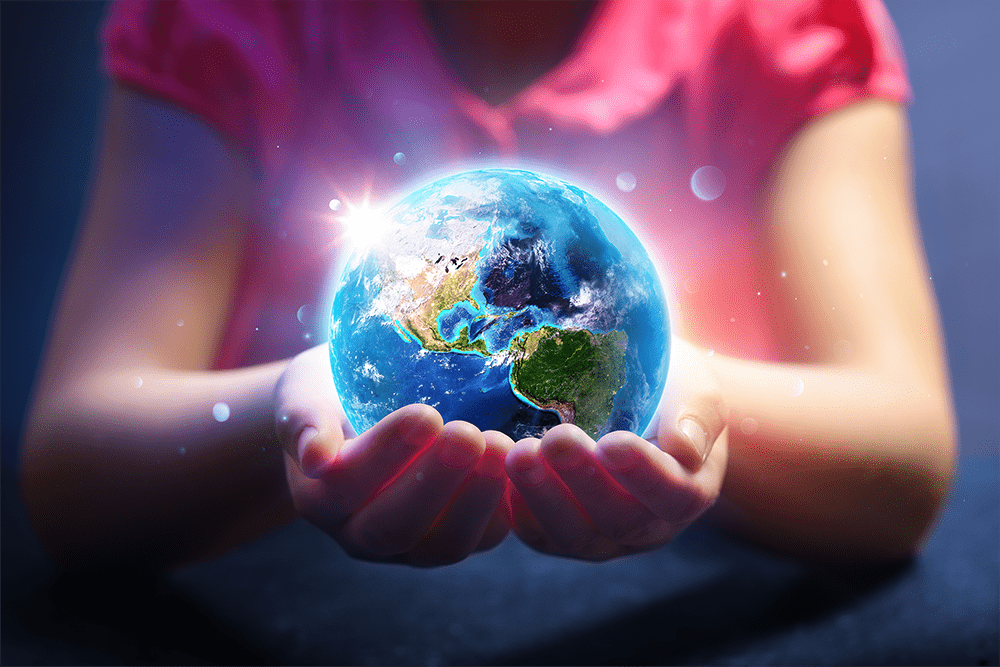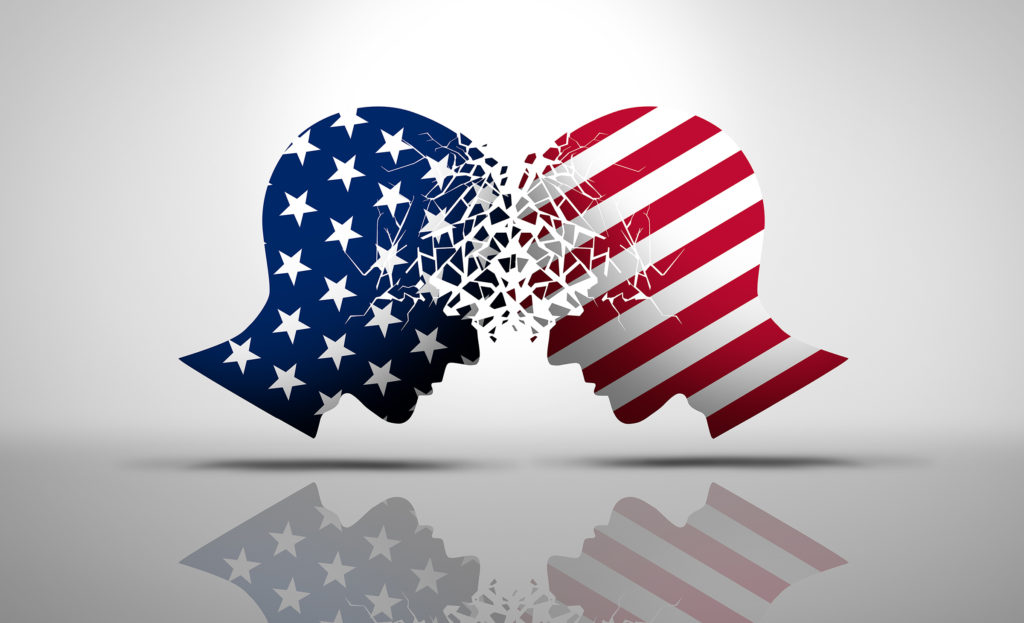NOW THAT WE HAVE YOUR ATTENTION, listen hard please.
We have one little thing to tell you. And it’s important.
The way we see the world and us in it—we’ve got it all wrong.
We’re all walking into a big, BIG trap, and the thing is…we built it.
We built it. But we don’t know we did.
We don’t know we built a trap, and we can’t even see it.
Here’s what it looks like. It’s a huge spiral, headed down, down, down. At the top, which in terms of time was long, long ago, the earth is lush with land and water, with flora and fauna—plants and trees of all sorts. It’s alive, humming with insects, dripping with rainfall, icy in places and steamy in others and elsewhere parched—wet and dry, hot and cold—everything pretty much in balance, in homeostasis. Humans are a small part of the multitudes of species. Over time, as we travelled down the spiral, the human population kept growing and redesigning “its” world, pushing that balance out of whack—inventing and manufacturing, cutting down forests, polluting air and water, paving land. In response, deeper in the spiral, where we are now, unbalance materializes as hurricanes, tornadoes, floods and droughts. We have killed wantonly and destroyed habitats, leading to a million species going extinct. Those plants and animals just couldn’t hang with it anymore. And it’s getting worse.
We’re destroying our nest, our only possible nest. What other species does that? And why are we doing it?
We can’t see what we’re doing, like a fish can’t see water.
We built that trap using the tools we were born with, which are part of our heritage. We’re complicated: some of our tools are beneficial, and some destructive.
We built it using our Short-Sightedness: we look for short-term gains at the expense—THE HUGE EXPENSE—of our long-term welfare.
We built it with our survival instincts, which we have allowed to metastasize into greed. We want to make sure we have everything we need to survive—the basics—food, shelter, etc. But we keep on going beyond that, ending up thinking we need more and more: bigger and better houses, big boats to run on the water, fancy restaurants and designer clothes, alcohol and drugs, and, and, and MONEY to buy more and more. We build and we take. We want power and we’ll go to war to get it if we have to (and make even more Money doing that). We don’t give a damn about long-term consequences.
And so we pollute, and destroy habitats, and kill other people, and kill off animals until we poison our own food supply and the air we breathe and cause the climate to heat up in anger and burn down our forests, and the water to rage in floods, drowning people and animals and knocking down the houses we built where sometimes we had no business to be.
We hunker down in the basest level of our nature, where Ego is king, where Fight-or-Flight lives, where it’s dog eat dog in a zero-sum game, where what’s mine is mine and what’s yours is mine, too. Where it’s easy to get paranoid and buy into conspiracy theories and think—as so many people are thinking—I have to be in control of this, because if I’m not, someone’s gonna come after me and take my stuff. Soooo, I don’t want any government telling ME what to do or what not to do. No, No, No! I don’t want any of that crap. I want to be in control.
THEN, when Earth rebels and starts to punish us, when plagues are added to the fires, droughts and floods, when our very unbalanced economies, with the little wealthy group on top and the huge group of the rest of us on the bottom, start to unravel from the weight of the greed, can we see the trap then?
Oh my. No we cannot. Because then we’d have to change our ways. And we’d rather NOT. No, it’s much easier to blame someone from another group (it’s the Blacks and the Jews and the immigrants and the Chinese and the Muslims and the elderly and the poor people—it’s their fault), and to double down and do what we’ve been doing, only more so and harder. If it didn’t work the first time, let’s try that again, and then again, and then again. You’ve heard the saying. That’s the definition of insanity. Well then.
However, there are some who say, “Turn the kaleidoscope, for goodness sake, before it’s too late.”
What would we see if we did?
We’d see what some, from ancient seers to prominent thinkers today, have been telling us. Although there are superficial differences among us, we’re all humans and we’re all interlinked. Not only linked among ourselves as humans, but we’re linked with every living animal and plant on the planet, and even with every atom in every molecule of all that is inert on the planet and in the atmosphere, and in the universe itself. We’re interlinked with everything! We’re a part of one enormous organism.
When we destroy a forest without thinking of the consequences, we’re hurting ourselves. When we unbalance Mother Nature, we’re hurting ourselves. When we turn on people who are different from us, we’re hurting ourselves. When we continue to widen the economic gap between the rich and the many, many, many, many, many poor people on the planet, we’re hurting OURSELVES.
The question is: do we care? We say we love our children and our grandchildren, but do we? Do we love them enough to face ourselves and our dark, destructive behavior for what it is? And take responsibility? And change that behavior? Do we love them for the long term?
Or are we stuck in our obstinate Short-Sightedness, refusing to look at the long-term consequences of our behavior—because if we became aware of those consequences, AND if we really love our children and our grandchildren as we say we do, why, we’d have to change, and change drastically, and give up things, and adopt new priorities, and be open to people who are different from ourselves, and give up the self-righteousness that comes with blaming and hating other people. That’s a lot.
Do we love our children and grandchildren enough? Or is it that when we say we love them, we really only mean that we think they’re cute and they make us look good. Maybe we don’t love them enough to care about their future. Maybe we don’t love them enough to care about their well-being.
Are there some things we prize that are more important than our own well-being and that of our family? Things like our political allegiance? Things like our need to be superior to others? Things like Status, Money and Power? Or even keeping what’s familiar. There were politicians who after the US 2020 presidential election wanted to throw out ballots showing votes for Joe Biden even though those ballots had also elected them. Their allegiance to Trump trumped their allegiance to themselves and their future. There are parents who cannot accept the sexual orientation of their children and would rather disown them than change. There are victims of domestic violence, who, when given the chance to flee with their children to safety, can’t bring themselves to do that, to leave the familiar and make that big change.
We are a complex species, we human beings. We align ourselves somewhere on an invisible spectrum ranging from complete self-absorption on the bottom to complete altruism on the top. The behaviors of those on the bottom, those mired in their narrow, destructive narcissism, threaten the well-being of the planet itself because of the way we are all interlinked with everything. They put pressure on those toward the top to keep trying to restore the the homeostasis and the ecosystems to create societies in which all people, and the planet itself, can flourish. Who will win? It’s hard to say.
The pivotal question is whether or not we care.
What complicates this situation even more is that those on the bottom end of that spectrum aren’t there because they want to be. Many forces conspired to warp and twist their better natures into tangled, destructive, uncontrolled impulses. In some ways it’s easier to be self-absorbed than it is to be altruistic. And being selfish is contagious. Can those who are saner and healthier and who sit on the top half of that spectrum find caring ways to nurture and maybe heal those on the bottom half? What a hard job that would be.
For those of us who care, a big question is, what can we do? We can find each other and join forces. We can support the organizations that work for sustainability and corporate responsibility. We can identify political candidates at all levels who reflect our values and support them with money and volunteer activities. We can share our values. We can raise children who care. We can work to make sure schools teach history, civics, and democratic values. With other volunteers we can create real community in our communities. We can join efforts to house the homeless. We can help to find employment for those who are out of work and to train those in prison for employment when they’re released. We can build community gardens and support green solutions for everything. We can care for mistreated animals and plant more and more trees. We can become vegetarian or vegan. We can stop using plastic and recycle whatever we can.
We’re sure you can find even more ideas than these.
This is a call to YOU. This is a very serious call to you. This isn’t just someone else’s responsibility. It’s yours, and ours, and every individual’s — it’s the responsibility of everyone who cares.
It’s also urgent. We need to start yesterday. We can do this! Gandhi was right: We CAN be the change we want to see. Are you in?
